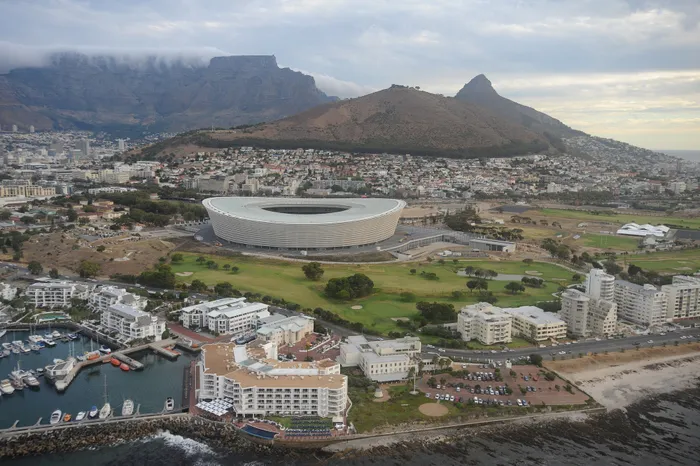Cape Town unveils bold 25-year transformation plan amid mixed reactions

The city said since it had been 25 years after the formation of the “unicity” it was the right time.
Image: Henk Kruger/Independent Newspapers
The City of Cape Town wants its murder rate cut to 25 per 100,000 people, its economy to grow by 110%, and 50,000 housing opportunities created each year — but residents may have to wait 25 years for it.
That target was set in the Mother City’s long-term plan. The document spelt out how the metro hoped Cape Town would look and function a quarter of a century later. And though critics, experts and stakeholders said they were happy with the plans, many told this publication that it was sad that residents would have to wait decades before seeing safer streets, shorter commutes and housing closer to work.
The plan was adopted after a round of public participation and was tabled to the mayoral portfolio committee this week.
The city said since it had been 25 years after the formation of the “unicity” it was the right time.
The document said: “In 2050, Cape Town will be a thriving city of hope where all its residents can experience freedom, opportunity and dignity."
These included cutting the murder rate to under 25 per 100 000 people; planting 100 000 trees; pushing over 75% of daily trips onto public transport, walking or cycling; doubling the size of the economy by 110%; and increasing housing opportunities to 50 000 a year.
The city also said it wanted 26% of water and 28% of its electricity to come from alternative sources, alongside improvements in safety, environmental health and service delivery.
The document further stated: “Persistent challenges in the city include unemployment, poverty, crime and the legacy of apartheid spatial planning... “In 2023/24, there were approximately 73 murders per 100,000 population, giving Cape Town one of the highest murder rates in the world.”
The city also noted: “Total crime per 100,000 population has significantly decreased… from approximately 8,000 cases per 100,000 in 2005/06 to 5,000 cases per 100 000 in 2023/24."
It also stressed that policing improvements depended on national powers. The plan said the public transport system could not be fixed without restoring the rail backbone.
The plan stated: “67,000 housing units could be built on the land of the Ysterplaat, Wingfield and Youngsfield military bases alone.” The economic targets were equally ambitious. One of the long-term goals was to “increase GDP by 110% by 2050”.
It warned that national barriers could block progress, pointing to “freight rail challenges”, “port congestion”, and unreliable electricity supply and climate change.
It noted that Cape Town “managed to successfully navigate the AI-tech wave”, but warned that new technologies could disrupt industries.
The document included rail devolution, increased SAPS deployment, hospital investment, education reform, port improvements and changes to laws that then limited municipal powers..
The City’s Mayco Member for Economic Growth, Alderman James Vos, said tourism operators welcome the City’s commitment to shaping “a more inclusive, resilient, and globally competitive destination,” adding that the long-term approach provides policy stability to operators, investors and communities who depend on tourism as a core economic engine.
He noted strong support within the tourism sector for the plan’s emphasis on improved safety, infrastructure upgrades, public transport reform and environmental resilience.
Get your news on the go, click here to join the Cape Argus News WhatsApp channel.
Cape Argus